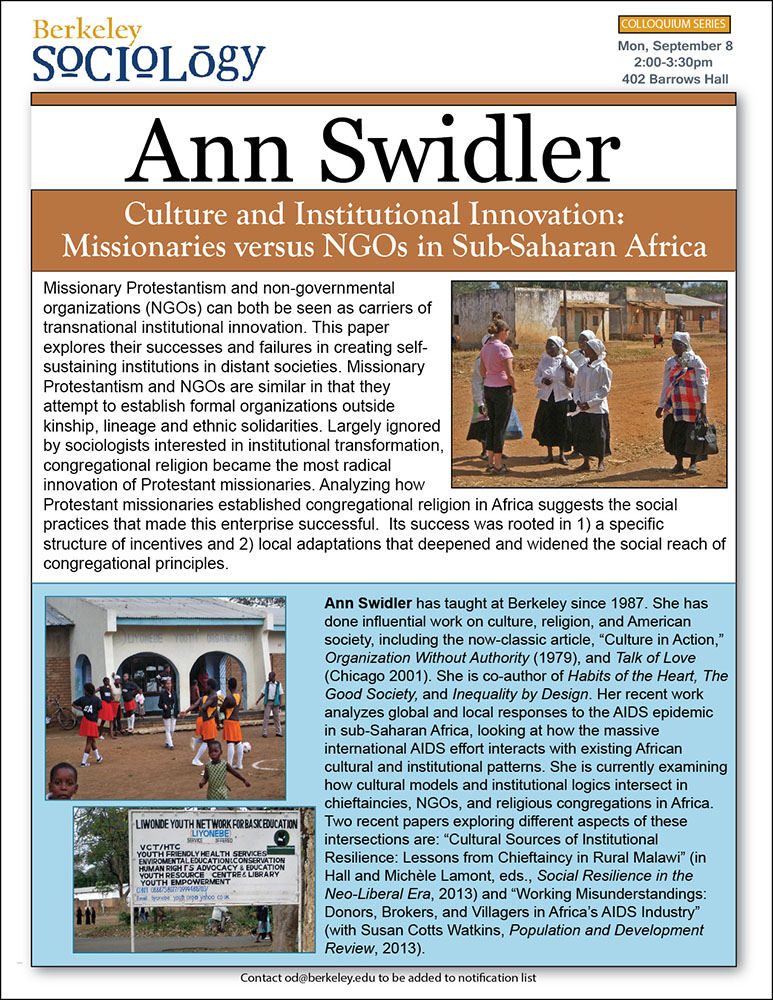
"Culture and Institutional Innovation: Missionaries versus NGOs in Sub-Saharan Africa "
Missionary Protestantism and non-governmental organizations (NGOs) can both be seen as carriers of transnational institutional innovation. This paper explores their successes and failures in creating self-sustaining institutions in distant societies. Missionary Protestantism and NGOs are similar in that they attempt to establish formal organizations outside kinship, lineage and ethnic solidarities. Largely ignored by sociologists interested in institutional transformation, congregational religion became the most radical innovation of Protestant missionaries. Analyzing how Protestant missionaries established congregational religion in Africa suggests the social practices that made this enterprise successful. Its success was rooted in 1) a specific structure of incentives and 2) local adaptations that deepened and widened the social reach of congregational principles.
Ann Swidler has taught at Berkeley since 1987. She has done influential work on culture, religion, and American society, including the now-classic article, “Culture in Action,” Organization Without Authority (1979), and Talk of Love (Chicago 2001). She is co-author of Habits of the Heart, The Good Society, and Inequality by Design. Her recent work analyzes global and local responses to the AIDS epidemic in sub-Saharan Africa, looking at how the massive international AIDS effort interacts with existing African cultural and institutional patterns. She is currently examining how cultural models and institutional logics intersect in chieftaincies, NGOs, and religious congregations in Africa. Two recent papers exploring different aspects of these intersections are: “Cultural Sources of Institutional Resilience: Lessons from Chieftaincy in Rural Malawi” (in Hall and Michèle Lamont, eds., Social Resilience in the Neo-Liberal Era, 2013) and “Working Misunderstandings: Donors, Brokers, and Villagers in Africa’s AIDS Industry” (with Susan Cotts Watkins, Population and Development Review, 2013).